bit.ly/4nah57V @benmarwick.bsky.social

bit.ly/4nah57V @benmarwick.bsky.social
In a new BBS target article, I propose a theory for such "super-attractors" + cultural evolution more broadly. Now open for commentary: www.cambridge.org/core/journal...

In a new BBS target article, I propose a theory for such "super-attractors" + cultural evolution more broadly. Now open for commentary: www.cambridge.org/core/journal...
Email me if you’d like to join the conversation: armando.falcucci@nyu.edu
#Archaeology #FlintFriday #FossilFriday 🏺

Email me if you’d like to join the conversation: armando.falcucci@nyu.edu
#Archaeology #FlintFriday #FossilFriday 🏺
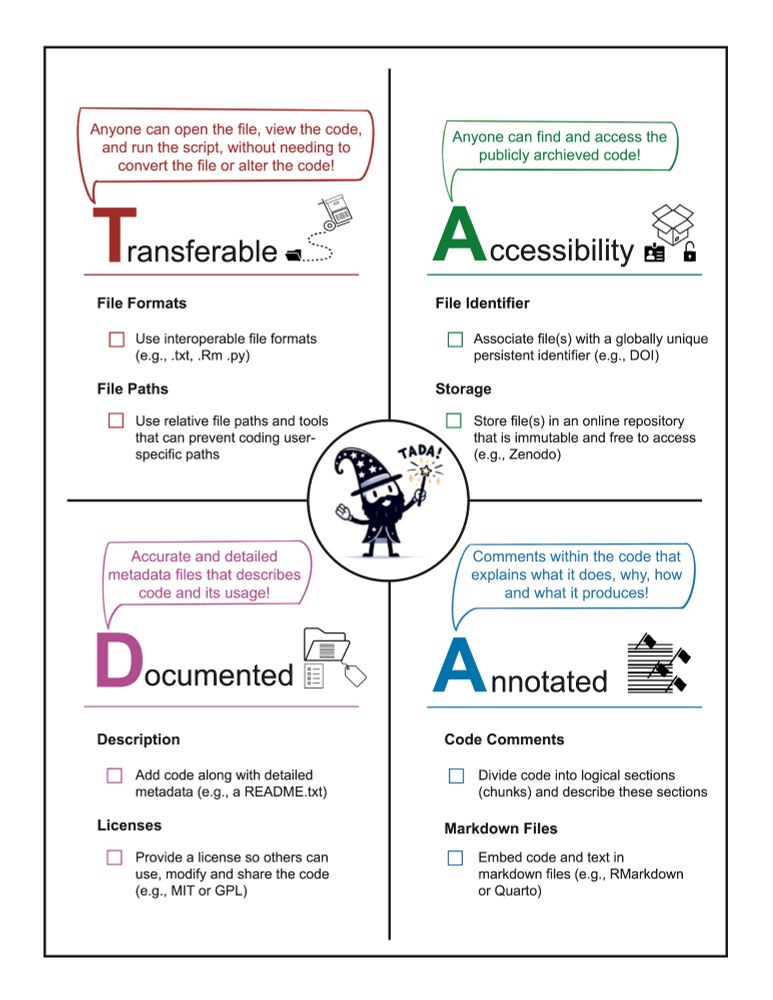
"TADA! Simple guidelines to improve code sharing"
tinyurl.com/8rmnwjrk
We present simple guidelines to help researchers of all coding levels improve the transparency and reproducibility of their analytical code, TADA!
Transferable, Accessible, Documented, Annotated.
"TADA! Simple guidelines to improve code sharing"
tinyurl.com/8rmnwjrk
We present simple guidelines to help researchers of all coding levels improve the transparency and reproducibility of their analytical code, TADA!
Transferable, Accessible, Documented, Annotated.
Thanks @benmarwick.bsky.social for the possibility to learn from reproducing your work and for providing the basis for this replication, which are unfortunately excessively rare in #Archaeology!
Thanks @benmarwick.bsky.social for the possibility to learn from reproducing your work and for providing the basis for this replication, which are unfortunately excessively rare in #Archaeology!
Accessible as interactive html version: aqueff.github.io/replication_...
and more traditional manuscript with doi here: doi.org/10.31235/osf...
Is archaeology a hard or soft science? 🏺🧪
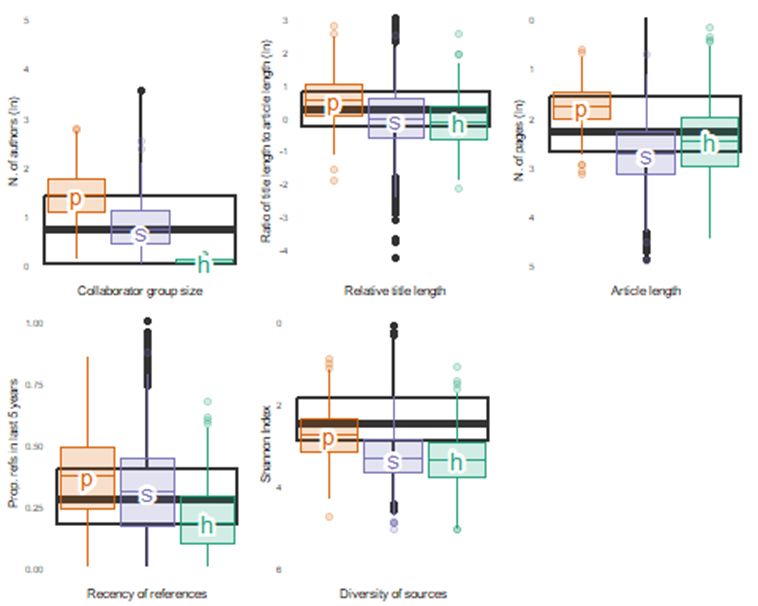
Accessible as interactive html version: aqueff.github.io/replication_...
and more traditional manuscript with doi here: doi.org/10.31235/osf...
Is archaeology a hard or soft science? 🏺🧪
This is based on my year of reproducibility reviews for the J. of Archaeological Science:
authors.elsevier.com/a/1lHjN_6yUM... 🧪🏺
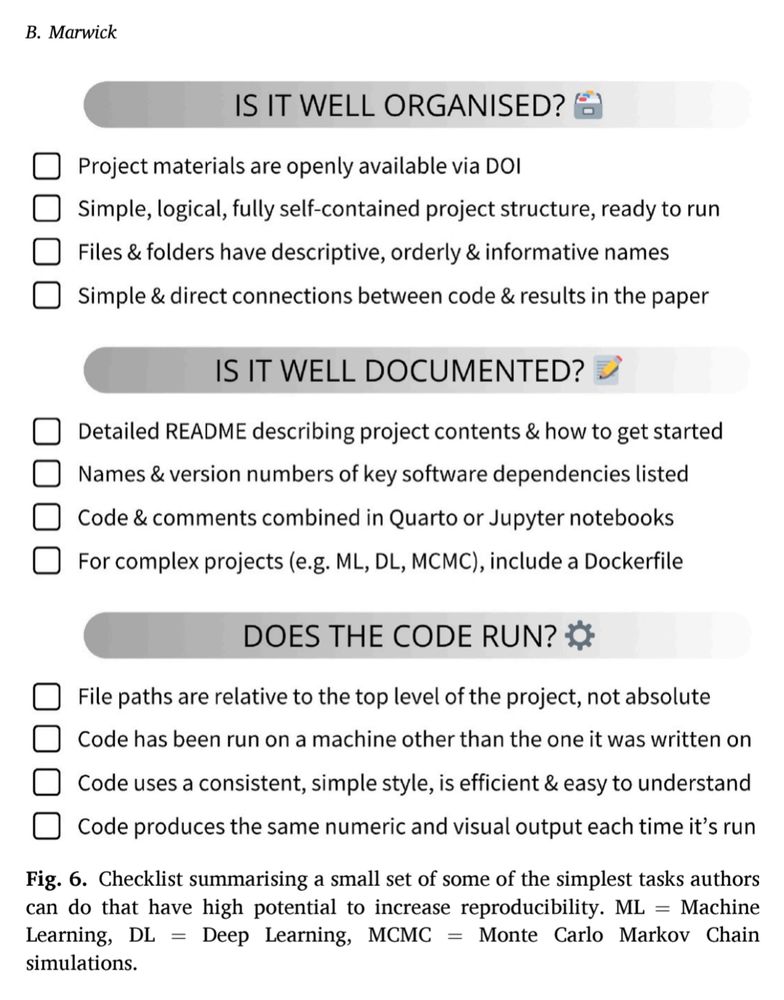
This is based on my year of reproducibility reviews for the J. of Archaeological Science:
authors.elsevier.com/a/1lHjN_6yUM... 🧪🏺
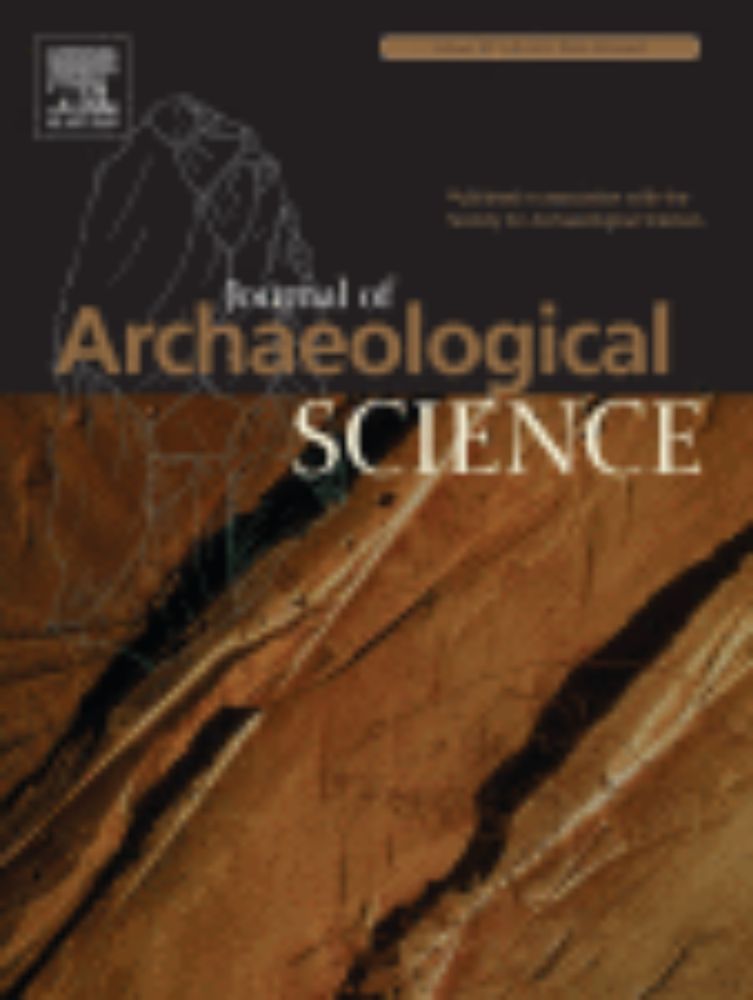
Here's my new paper that has a go at answering this question by analysing 10,000 journal articles:
authors.elsevier.com/a/1lHjN_6yUM...




Here's my new paper that has a go at answering this question by analysing 10,000 journal articles:
authors.elsevier.com/a/1lHjN_6yUM...
The web archive now hosts 3400+ free and documented CSV datasets. Fantastic for teaching and testing!
And {Rdatasets} is a new #RStats 📦 for easy download and search
Web archive: vincentarelbundock.github.io/Rdatasets
R 📦: vincentarelbundock.github.io/Rdatasetspkg
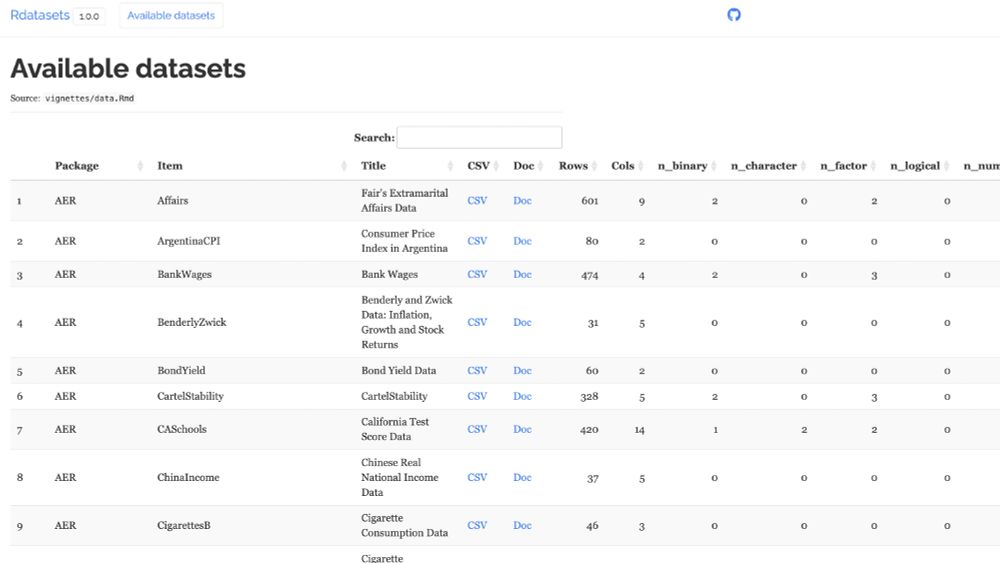
The web archive now hosts 3400+ free and documented CSV datasets. Fantastic for teaching and testing!
And {Rdatasets} is a new #RStats 📦 for easy download and search
Web archive: vincentarelbundock.github.io/Rdatasets
R 📦: vincentarelbundock.github.io/Rdatasetspkg
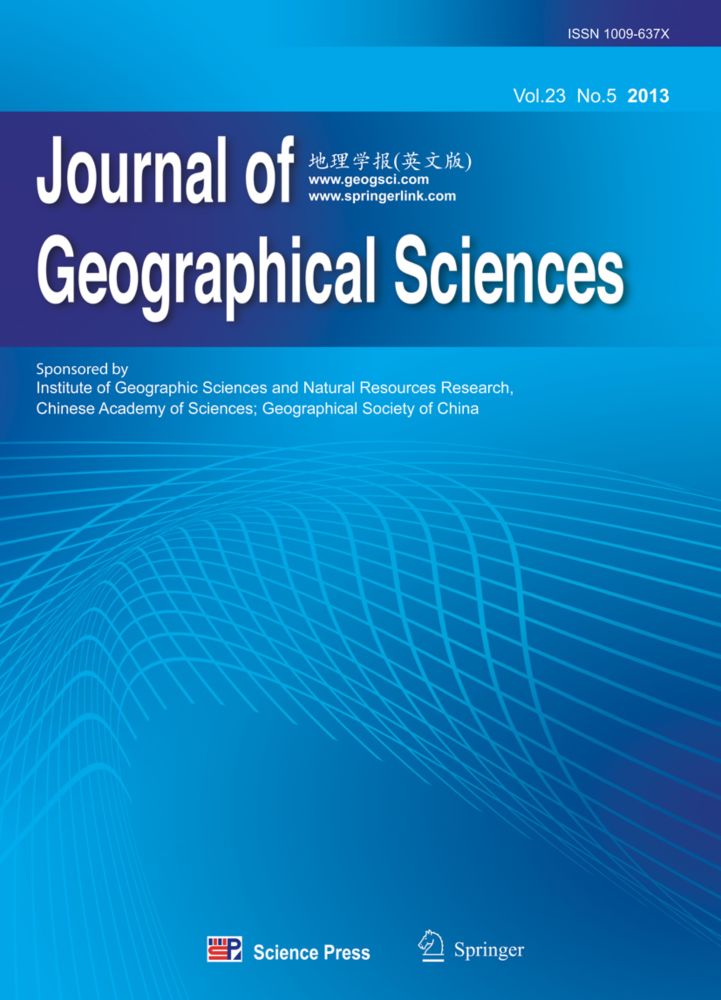
Code used in research is key to the methods and scientific output and we should ensure it’s not just "available" but easy to verify and build on.
We present a practical tool to code review for scientists 🧪
work with @animalecol-nioo.bsky.social
Approach: ▶️ cup.org/4hFclo5
Editorial: ▶️ cup.org/41AHuDk
#Archaeology #SAA2025Denver

Approach: ▶️ cup.org/4hFclo5
Editorial: ▶️ cup.org/41AHuDk
#Archaeology #SAA2025Denver
https://go.nature.com/42UuoT3
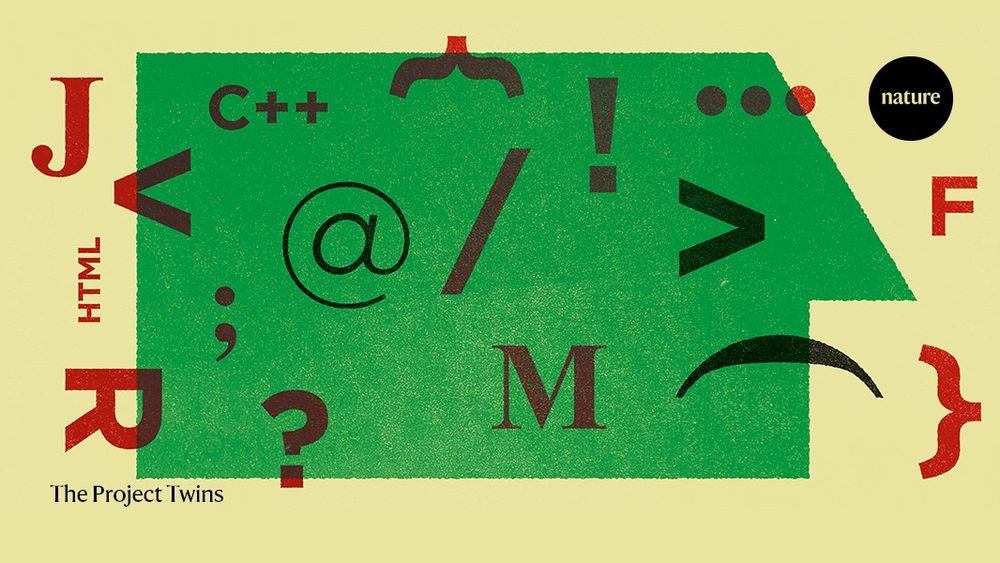
https://go.nature.com/42UuoT3
The vayr package version 1.0.0 is now on CRAN.
It contains position adjustments for ggplot2 that help with overplotting in pleasing ways. My favorite is position_sunflower().
- install.packages("vayr")
- alexandercoppock.com/vayr
#rstats #ggplot2 #dataviz
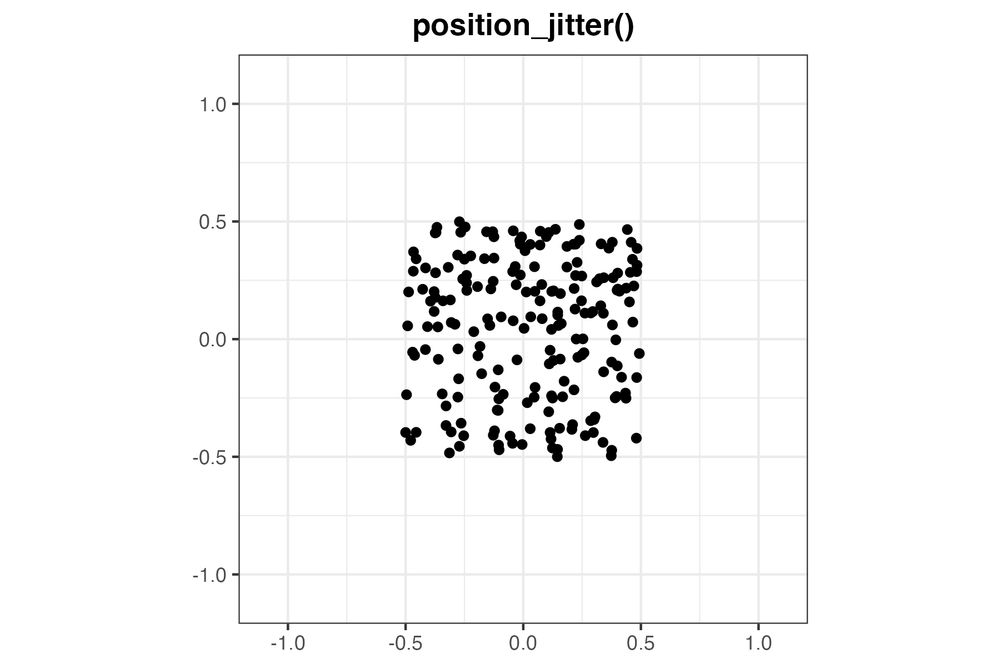

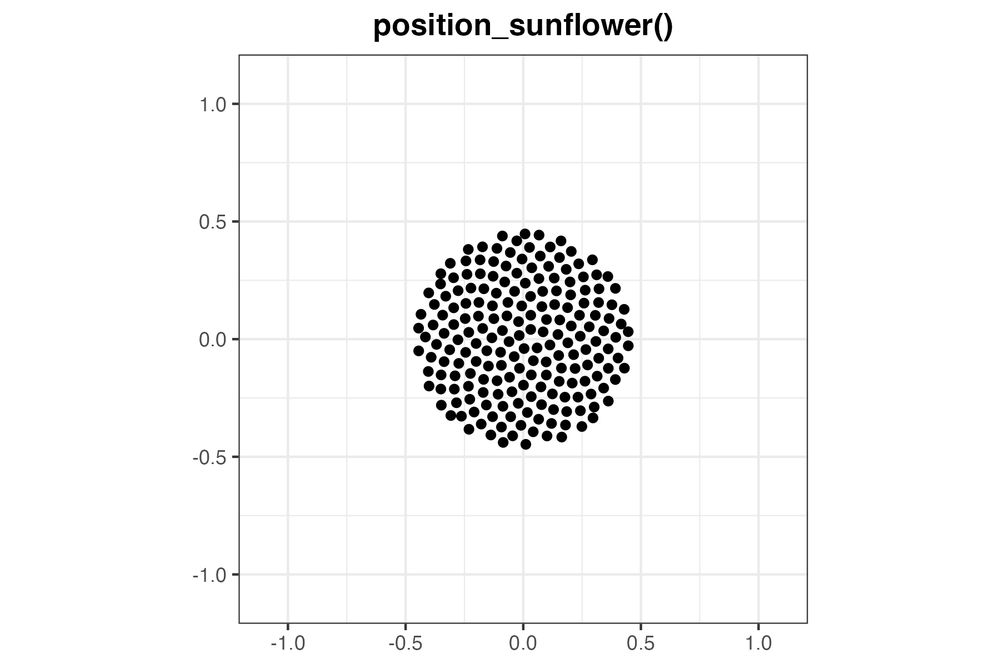

The vayr package version 1.0.0 is now on CRAN.
It contains position adjustments for ggplot2 that help with overplotting in pleasing ways. My favorite is position_sunflower().
- install.packages("vayr")
- alexandercoppock.com/vayr
#rstats #ggplot2 #dataviz
www.nature.com/articles/s44...
This primer is for beginners to get started, advanced programmers to improve, and PIs.
#psychology #psychsci #cogsci #neuroskyence
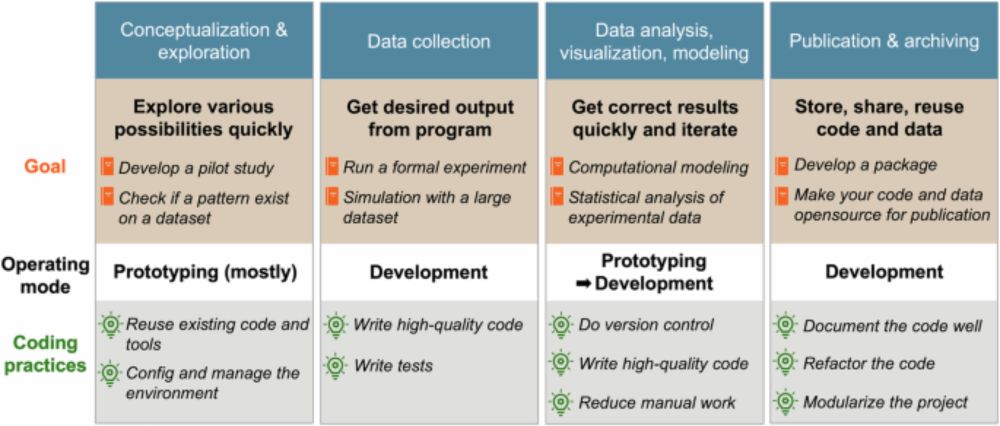
www.nature.com/articles/s44...
This primer is for beginners to get started, advanced programmers to improve, and PIs.
#psychology #psychsci #cogsci #neuroskyence
Our paper tries to give practical advice on how you can improve your scientific workflow, without being a coding guru.
www.nature.com/articles/s44...
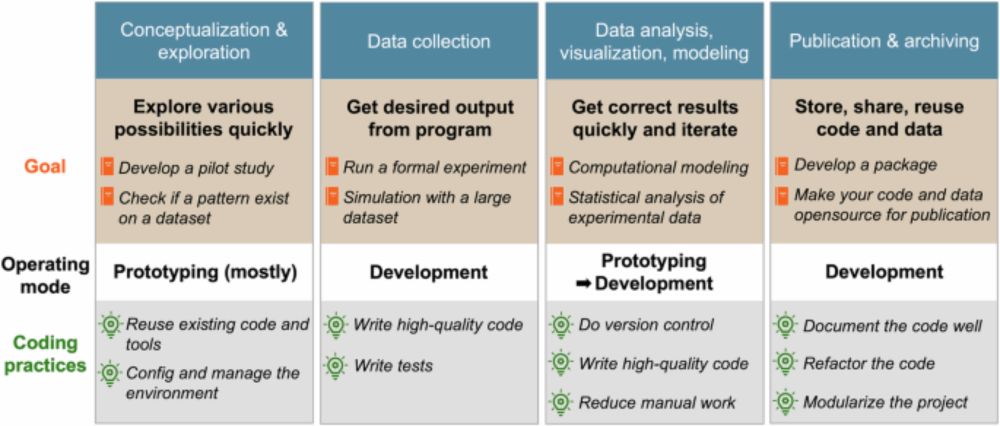
Our paper tries to give practical advice on how you can improve your scientific workflow, without being a coding guru.
www.nature.com/articles/s44...

onlinelibrary.wiley.com/page/journal...
Lots of best practices and specific tips for increasing the quality, usefulness & impact of papers
🧪
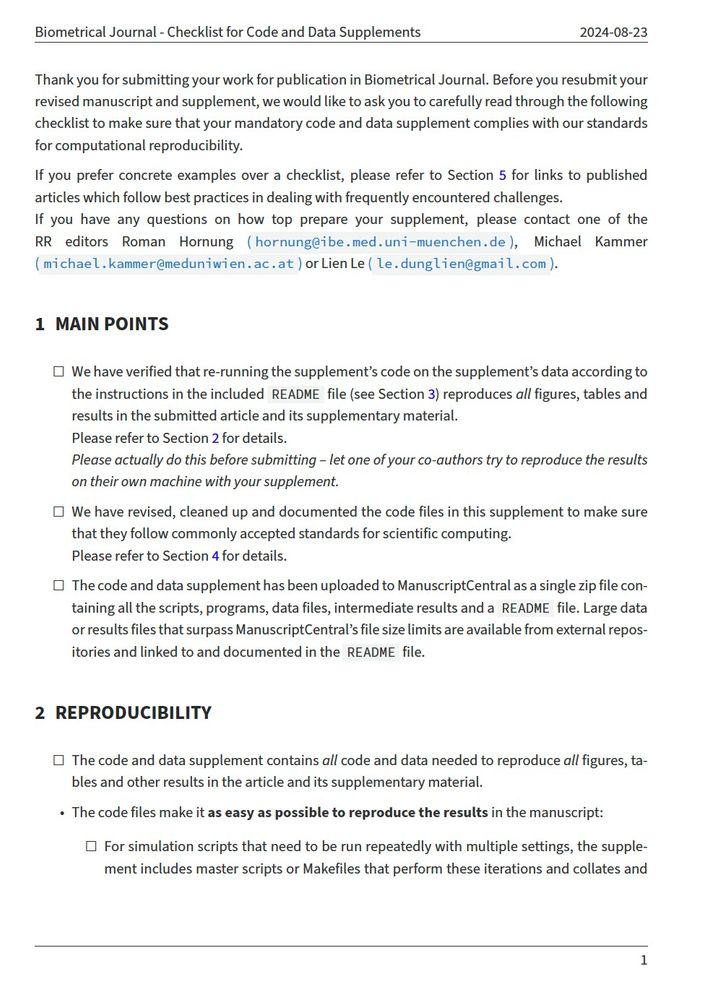



onlinelibrary.wiley.com/page/journal...
Lots of best practices and specific tips for increasing the quality, usefulness & impact of papers
🧪
From Culture History to Phylogenetics 🏺🧪
Michael O’Brien, @svalver.bsky.social et al
link.springer.com/article/10.1...
Agrees with @nilese.bsky.social but documenting of (pre)history is only 1st step facing paleobiologists and archaeologists.

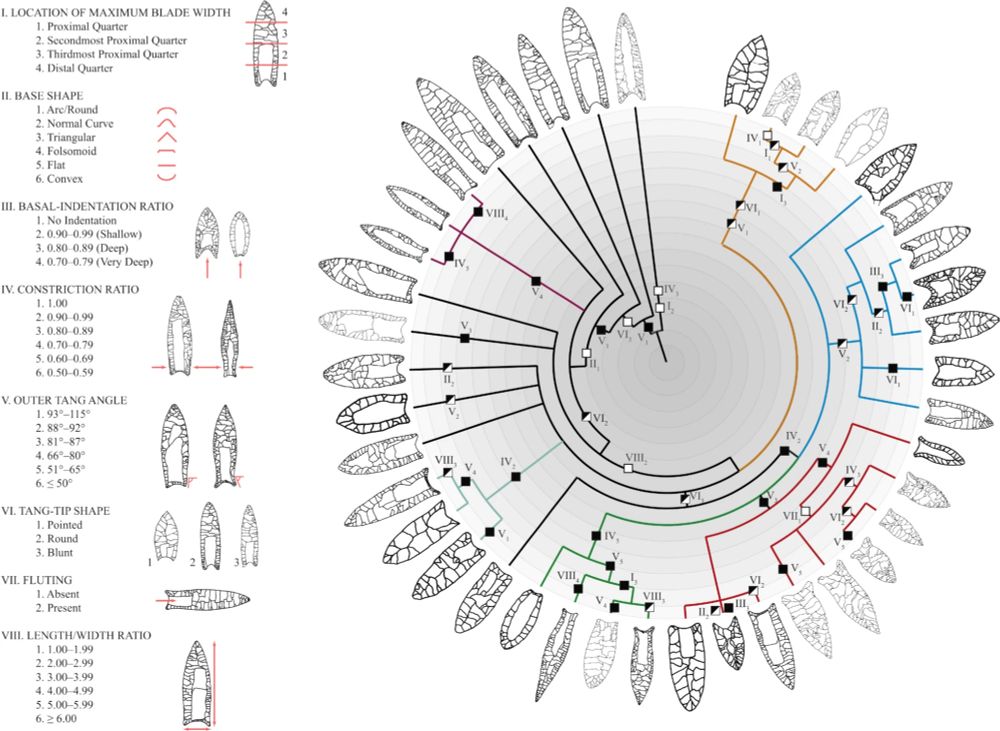
From Culture History to Phylogenetics 🏺🧪
Michael O’Brien, @svalver.bsky.social et al
link.springer.com/article/10.1...
Agrees with @nilese.bsky.social but documenting of (pre)history is only 1st step facing paleobiologists and archaeologists.

